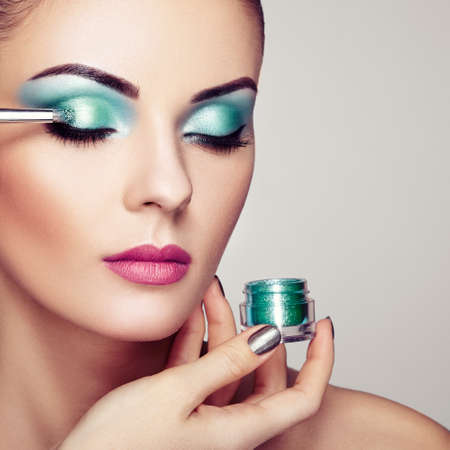Understanding Eye Creams: What the British Beauty Scene Says
The relationship between eye creams and skincare enthusiasts in the UK is unique, shaped by both tradition and a forward-thinking approach to beauty. Across the country, eye creams are seen not just as an optional extra but as a staple in daily routines, cherished for their gentle yet effective touch around the delicate eye area. This isn’t just about looking good—it’s about embracing self-care and skin health, values deeply rooted in British culture.
British consumers often gravitate towards products that combine heritage with innovation. Many local brands have built their reputation on trustworthy formulations, blending time-honoured botanicals with cutting-edge science. The table below highlights some of the most beloved UK-based eye cream brands and what makes them stand out:
| Brand | Key Features | Why Brits Love It |
|---|---|---|
| No7 | Dermatologically tested, gentle formulas, anti-ageing focus | Accessible, trusted high street favourite |
| Elemis | Natural extracts, spa-inspired, luxurious textures | A pampering experience with visible results |
| REN Clean Skincare | Clean ingredients, sustainability, cruelty-free | Eco-conscious choice for modern consumers |
| Liz Earle | Botanical blends, sensitive skin friendly, ethical sourcing | Cult classic for holistic skincare lovers |
For many in the UK, eye creams represent more than just a beauty product—they symbolise a mindful approach to ageing gracefully and caring for oneself. Whether it’s combating dark circles from early morning commutes or soothing tired eyes after a long day at work or study, these creams have earned their place on bathroom shelves up and down the country. Understanding how integral they are within British routines sets the stage for busting common myths and uncovering what really works.
2. Myth: Eye Creams Are Just Fancy Moisturisers
It’s a common belief across the UK that eye creams are simply glorified moisturisers, perhaps with a smaller price tag but a much bigger cost per millilitre. However, this couldn’t be further from the truth. The delicate skin around our eyes has unique needs, and targeted treatments are crafted with those very differences in mind. Let’s explore why reaching for your regular face cream isn’t always the best approach for this sensitive area.
Why Is the Eye Area So Special?
The skin around our eyes is thinner, more fragile, and often the first place to show signs of fatigue or ageing—think puffiness, fine lines, and dark circles. Unlike the rest of your face, this area contains fewer oil glands, making it more prone to dryness and irritation. That’s why British dermatologists often recommend using products specifically developed for the eye contour.
Key Differences: Eye Creams vs Regular Moisturisers
| Feature | Eye Creams | Regular Moisturisers |
|---|---|---|
| Texture & Consistency | Lighter, fast-absorbing, non-greasy | Varies; often heavier or richer |
| Active Ingredients | Peptides, caffeine, hyaluronic acid, vitamin K (targeted for puffiness, dark circles) | General hydrators like glycerin and shea butter; less targeted actives |
| Sensitivity Considerations | Formulated to minimise irritation; fragrance-free options common | May contain fragrances and higher concentrations of certain actives unsuitable for eyes |
| Main Functions | Reduce puffiness, brighten under-eyes, smooth fine lines | General hydration and barrier support for facial skin |
The Science Behind Targeted Treatments
British skincare experts emphasise that effective eye creams are backed by research into how specific ingredients interact with the thinner periorbital area. For example, caffeine can help constrict blood vessels to reduce puffiness—a benefit you won’t get from standard moisturisers. Meanwhile, peptides and gentle forms of retinol are chosen to address fine lines without causing irritation. So while you might be tempted to use one product for all purposes, investing in a well-formulated eye cream can make all the difference for that delicate British under-eye skin.
![]()
3. Myth: Only Older People Need Eye Cream
It’s a common misconception in the UK that eye cream is a luxury reserved only for those with mature skin or visible signs of ageing. However, British skincare experts increasingly highlight the value of preventive care, encouraging people of all ages to consider eye cream as part of their daily routine. The delicate skin around the eyes is thinner and more prone to environmental stressors, making it susceptible to early signs of fatigue and dryness regardless of age.
Expert Opinions on Preventive Eye Care
Leading dermatologists in Britain agree that adopting an eye cream early can help maintain hydration, support the skin barrier, and reduce the risk of premature fine lines. Dr. Emily Watson, a London-based consultant dermatologist, notes: “Prevention is just as important as treatment when it comes to eye care. Hydrating ingredients like hyaluronic acid and peptides benefit younger skin by providing essential moisture and resilience.”
Common British Skincare Habits by Age Group
| Age Group | Typical Approach | Recommended Eye Care |
|---|---|---|
| Teens & 20s | Cleansing, basic moisturiser, SPF | Lightweight gel or serum-based eye creams for hydration and protection |
| 30s & 40s | Introduction of serums, targeted treatments | Creams with antioxidants and peptides to prevent early fine lines and puffiness |
| 50+ | Focus on nourishment and addressing visible ageing | Richer creams with retinol or ceramides for firmness and repair |
The Takeaway for All Ages in the UK
No matter your age, including an appropriate eye cream in your skincare regimen can help uphold the classic British approach to gentle, long-term care. Rather than waiting for wrinkles or dark circles to appear, many UK beauty enthusiasts now see eye cream as a way to nurture delicate under-eye skin from early adulthood onwards—making this myth one worth leaving behind.
4. Myth: More Expensive Means More Effective
Its a common belief across the UK that splurging on high-end eye creams guarantees better results than picking up a more affordable option from your local chemist or high street shop. But is this really the case, or is it just clever marketing?
Luxury vs. High Street: What’s the Real Difference?
Many luxury brands boast about exclusive ingredients, advanced technology, or celebrity endorsements. While these elements can certainly be appealing, the reality is that both luxury and affordable eye creams often contain similar active ingredients—think hyaluronic acid, peptides, vitamin C, and caffeine.
A Quick Comparison: Ingredients & Benefits
| Product Type | Key Ingredients | Main Benefits | Typical Price Range (UK) |
|---|---|---|---|
| Luxury Eye Creams | Peptides, rare plant extracts, gold particles, hyaluronic acid | Hydration, reduce puffiness, anti-ageing | £40–£200+ |
| High Street/Chemist Brands | Hyaluronic acid, vitamin E, retinol, caffeine | Hydration, brighten under-eyes, smooth fine lines | £5–£25 |
The Bottom Line for UK Shoppers
Your skin’s needs are unique—what works for one person may not suit another. Trusted UK chemists like Boots and Superdrug offer a wide array of effective eye creams at reasonable prices. Sometimes, paying extra means you’re investing in luxe packaging or a designer name rather than a superior formula. It’s wise to focus on ingredient lists and clinical claims rather than price tags alone.
5. Fact: Eye Creams Need Gentle Application
When it comes to applying eye creams, gentle care is essential—this is not just a myth but a well-supported fact, particularly highlighted by UK dermatologists and rooted in classic British beauty routines. The skin around the eyes is notably thinner and more delicate than other areas of the face, making it susceptible to irritation and premature ageing if handled too roughly.
Why a Delicate Touch Matters
British skincare experts consistently advise a feather-light approach when using eye creams. Overzealous rubbing or tugging can stretch the fragile skin, potentially leading to fine lines and puffiness. Instead, embracing the traditional British mantra of “less is more” helps maintain the integrity of this sensitive area.
UK Dermatologists’ Recommendations
| Application Tip | Explanation |
|---|---|
| Use your ring finger | The ring finger naturally applies less pressure, reducing the risk of stretching the skin. |
| Pat, don’t rub | Gently tapping the cream ensures even absorption without unnecessary friction. |
| Apply sparingly | A pea-sized amount is sufficient for both eyes; over-application can lead to product build-up. |
| Start from the inner corner | Lightly move outward following the natural contour to avoid dragging the skin. |
Timeless British Beauty Wisdom
Many British beauty enthusiasts rely on understated rituals, often passed down through generations. One such tip is chilling your eye cream slightly before application—a method favoured across the UK for its soothing effect and ability to reduce puffiness. Combined with gentle tapping motions, this approach not only respects tradition but also supports optimal results.
Ultimately, whether you’re new to eye creams or a seasoned user, adopting a delicate technique—as advocated by both science and time-honoured British practices—will help you nurture your under-eye area with kindness and care.
6. How to Choose the Right Eye Cream for You
With so many options available on UK high streets and online, choosing the right eye cream can feel overwhelming. To help you make an informed decision, here are some gentle yet effective tips tailored for British lifestyles and skin concerns.
Reading Labels: What to Look For
Start by examining the label. British regulations require ingredients to be listed in descending order of concentration. Look for clear, recognisable names and avoid products with a long list of unpronounceable chemicals, especially if you have sensitive skin. Opt for fragrance-free or hypoallergenic options if irritation is a concern.
Understanding Key Ingredients
| Ingredient | Benefit | Best For |
|---|---|---|
| Hyaluronic Acid | Hydrates and plumps fine lines | Dryness, mature skin, central heating effects |
| Caffeine | Reduces puffiness and dark circles | Tired eyes, busy lifestyles, early mornings |
| Peptides | Supports collagen production | Aging concerns, loss of firmness |
| Vitamin C | Brightens and evens tone | Dullness, pigmentation from lack of sunlight |
| Ceramides | Strengthens skin barrier | Sensitivity, harsh weather conditions in the UK |
Picking the Perfect Eye Cream for Your Needs and Lifestyle
- If you commute daily or spend time outdoors: Consider an eye cream with antioxidants to combat pollution and environmental stressors common in UK cities.
- If you work long hours or face digital screens: Caffeine-based formulas can help revive tired eyes and reduce the look of fatigue.
- If your home uses central heating: Hydrating creams with hyaluronic acid can counteract dryness caused by indoor heating during colder months.
- If you have sensitive skin: Choose simple formulas with ceramides or oat extract, avoiding unnecessary fragrances or dyes.
- If you’re concerned about ageing: Look for peptides and gentle retinol alternatives formulated specifically for the delicate eye area.
A Gentle Reminder on Application
No matter which product you choose, always apply your eye cream with clean fingertips using a soft tapping motion. This helps prevent tugging at the delicate under-eye skin—a must for keeping your eyes looking fresh and radiant throughout the unpredictable British seasons.


